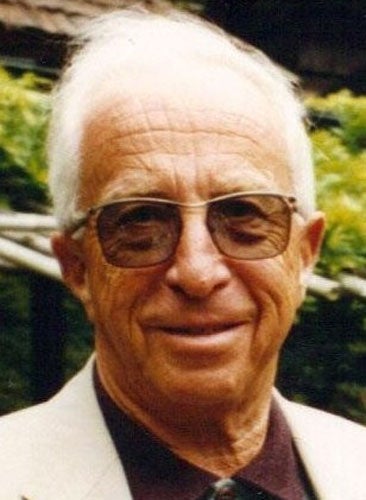Walter Foster: Champion of Anglo-Austrian friendship

Walter Jonathon Foster was an Austrian who as a teenager fled from the Nazis and went on to spend a lifetime dedicated to advancing relations between his homeland and Britain, his adopted country. The Nazis killed most of his family, the Second World War propelling him on a hazardous journey which took him to England and Australia, then Austria, and finally to England again. His post-war efforts brought him both an OBE and the Republic of Austria's highest civil award for his work in promoting cultural and political understanding between the two countries.
Born Walter Fast into a wealthy, educated and entrepreneurial family in Vienna in 1923, he experienced first-hand the turbulent times which included civil war and Nazi Germany's Anschluss into Austria. The pre-war persecution of Jews reached its pinnacle in Kristallnacht (the so-called night of broken glass) in November 1938, when German and Austrian Nazis killed 100 Jews and subjected thousands more to violence and intimidation. More than 250 synagogues and community buildings were destroyed, tens of thousands of Jewish shops and homes were broken into and nearly 30,000 Jewish men were arrested and sent to concentration camps.
Walter Fast fled to England shortly afterwards, leaving his parents behind; his elder brother, Alfred, went to the United States. Walter owed his liberty, and probably his life, to an operation which had the informal name of Kindertransport, a movement unique in that Jews, Quakers and Christians of many denominations worked together to rescue primarily Jewish children. The first sealed train carrying childen left in December 1938, less than a month after Kristallnacht; the last left in September 1939, two days before Britain went to war. Kindertransport rescued around 10,000 children in all: Fast was one of the last survivors of the evacuation.
His arrival in Britain was by no means the end of his travels. At the outbreak of war he was interned as an enemy alien on the Isle of Man then sent on the ship Dunera to be interned at Hay Camp in Australia. After 18 months he and others were granted leave to enlist and return to Britain, where he served with the Royal Electrical and Mechanical Engineers.
Meanwhile, up to a score of family members perished, though his father, who owned a number of factories, survived. He was held for a time in Dachau concentration camp, but was released after signing over his factories and fled to Palestine.
From 1945 Foster served as an interpreter with the occupation forces in Germany before studying international relations at the London School of Economics, where he met his wife, Rachel. They married in 1949. At LSE he met people who were to be friends and colleagues for the rest of his life, including Martin Ennals, later Secretary-General of Amnesty International. He moved on to work for the Anglo-Austrian Society, first on a temporary basis and later as its general secretary, a post he held until retiring in 1992.
After the war his society devoted itself to relief work, bringing hundreds of needy Austrian children to Britain for respite care. One of its aims was to promote musical culture, with Foster organising the childrens' travel, managing concert tours and general administration. The Anglo-Austrian Music Society helped organise the first visits to this country of performers such as the Vienna State Opera, the Vienna Philharmonic Orchestra and the Vienna Boys Choir.
For four decades Foster's life was a round of working with musicians, orchestras, opera and ballet companies as the society arranged social functions, meetings, lectures and language courses. At the peak of the society's activities, at the end of the 1960s and in the early 1970s, over 16,000 British and Austrian children and young people participated each year in exchange holidays and other visits.
The society was independent and non-political but enjoyed the support of all of the major political parties from both Houses of Parliament and the Austrian government. Foster felt he had made a real contribution to Anglo-Austrian relations, and was delighted when Austria joined the EU in 1995. His family described him as devoid of bitterness about the War, one relative describing him as "the most forgiving man you could ever have met".
Foster returned often to Austria, maintaining his father's holiday home at Reichenau in the eastern Alps and taking his three children on tours of Europe to teach them aspects of European history and culture. He was decorated for his services to the enhancement of cultural and political relationships between Britain and Austria, with the award of an OBE and the Goldenes Ehrenzeichen, Austria's highest civil award.
David McKittrick
Walter Jonathon Foster, born Vienna 25 June 1923; married 1949 Rachel Ginsburg (one daughter, three sons); died 27 December 2009.
Subscribe to Independent Premium to bookmark this article
Want to bookmark your favourite articles and stories to read or reference later? Start your Independent Premium subscription today.

Join our commenting forum
Join thought-provoking conversations, follow other Independent readers and see their replies